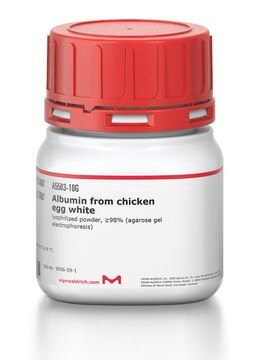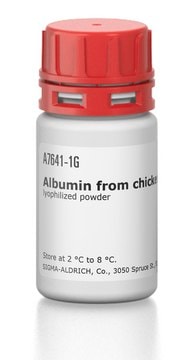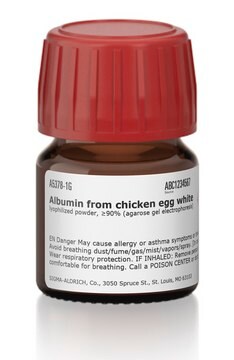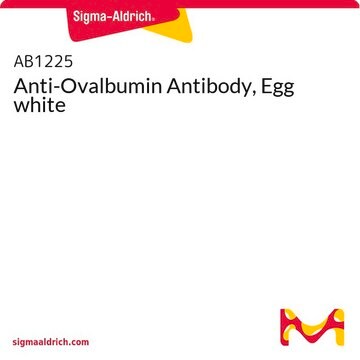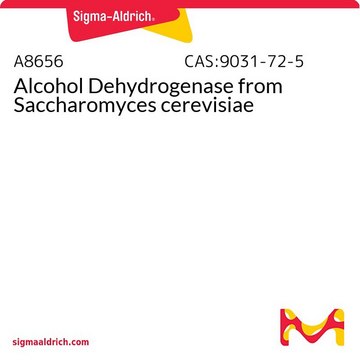ZRB2668
Anti-Ovalbumin Antibody, clone 3G13 ZooMAb® Rabbit Monoclonal

recombinant, expressed in HEK 293 cells
Synonyme(s) :
Allergen Gal d II, Egg albumin, Plakalbumin
About This Item
Produits recommandés
Source biologique
rabbit
Niveau de qualité
Produit recombinant
expressed in HEK 293 cells
Conjugué
unconjugated
Forme d'anticorps
purified antibody
Type de produit anticorps
primary antibodies
Clone
3G13, recombinant monoclonal
Description
recombinant, expressed in HEK 293 cells
Gamme de produits
ZooMAb® learn more
Forme
lyophilized
Poids mol.
calculated mol wt 42.88 kDa
observed mol wt ~43 kDa
Produit purifié par
using Protein A
Espèces réactives
chicken
Conditionnement
antibody small pack of 25
Validation améliorée
recombinant expression
Learn more about Antibody Enhanced Validation
Technique(s)
ELISA: suitable
affinity binding assay: suitable
western blot: suitable
Isotype
IgG
Séquence de l'épitope
Unknown
Numéro d'accès Protein ID
Numéro d'accès UniProt
Conditions d'expédition
ambient
Température de stockage
2-8°C
Informations sur le gène
chicken ... SERPINB14(396058)
Description générale
Spécificité
Immunogène
Application
Evaluated by Western Blotting in Chicken egg ovalbumin.
Western Blotting Analysis: A 1:10,000 dilution of this antibody detected Chicken egg ovalbumin.
Tested Applications
Western Blotting Analysis: A 1:1,000 dilution from a representative lot detected recombinant Chicken egg Ovalbumin..
Affinity Binding Assay Analysis: A representative lot of this antibody bound Ovalbumin with a KD of 2.6 x 10-7 in an affinity binding assay.
Enzyme Immunoassay (ELISA) Analysis: Serial of dilutions from a representative lot detected Ovalbumin.
Note: Actual optimal working dilutions must be determined by end user as specimens, and experimental conditions may vary with the end user.
Description de la cible
Forme physique
Stockage et stabilité
Informations légales
Clause de non-responsabilité
Vous ne trouvez pas le bon produit ?
Essayez notre Outil de sélection de produits.
Code de la classe de stockage
11 - Combustible Solids
Classe de danger pour l'eau (WGK)
WGK 1
Point d'éclair (°F)
Not applicable
Point d'éclair (°C)
Not applicable
Faites votre choix parmi les versions les plus récentes :
Certificats d'analyse (COA)
It looks like we've run into a problem, but you can still download Certificates of Analysis from our Documents section.
Si vous avez besoin d'assistance, veuillez contacter Service Clients
Déjà en possession de ce produit ?
Retrouvez la documentation relative aux produits que vous avez récemment achetés dans la Bibliothèque de documents.
Notre équipe de scientifiques dispose d'une expérience dans tous les secteurs de la recherche, notamment en sciences de la vie, science des matériaux, synthèse chimique, chromatographie, analyse et dans de nombreux autres domaines..
Contacter notre Service technique